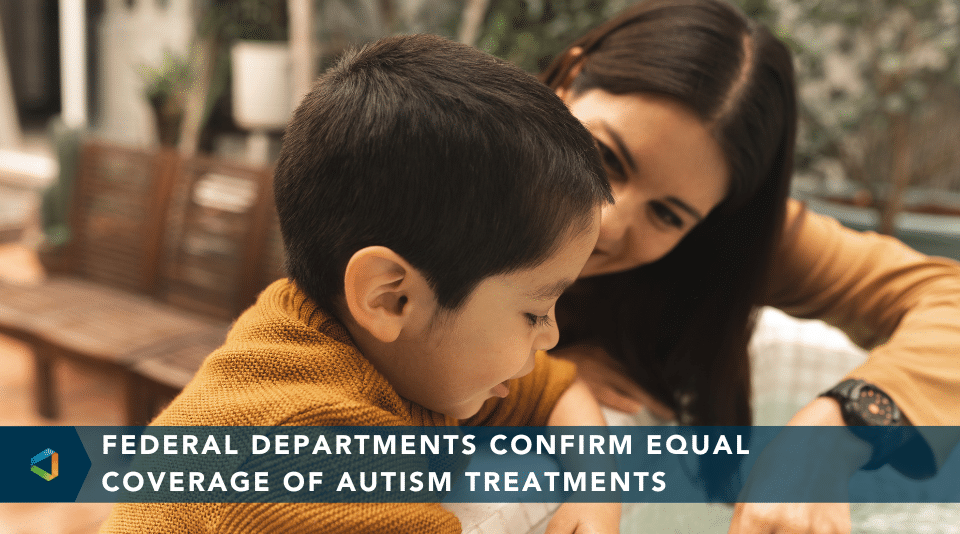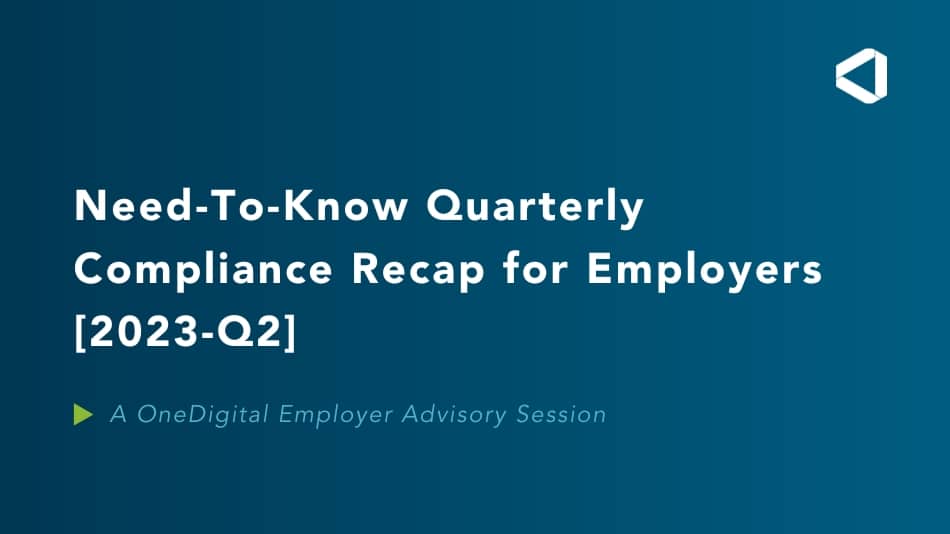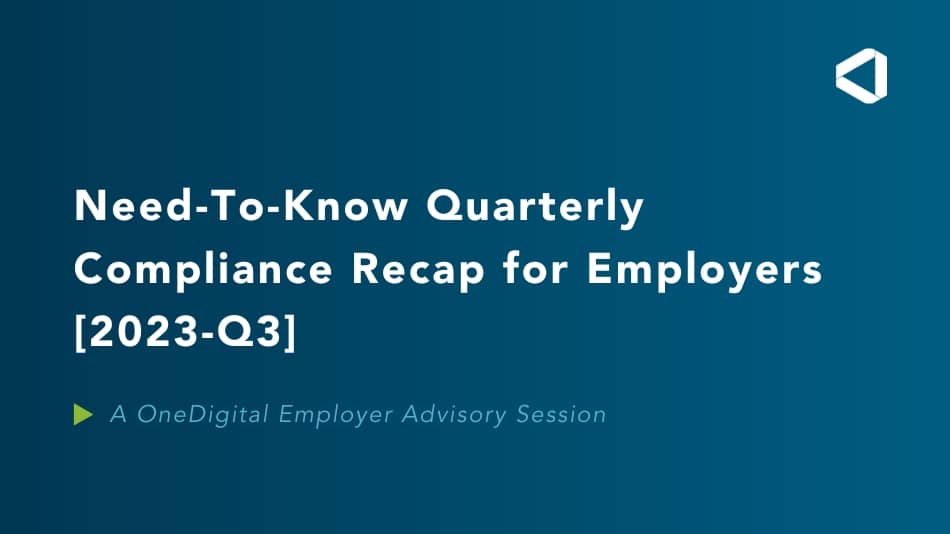Compliance Confidence
Federal Departments Issue Proposed Mental Health Parity Rules Under MHPAEA
Federal Departments Issue Proposed Mental Health Parity Rules Under MHPAEA
The federal government recently released proposed regulations related to the Mental Health Parity and Addiction Equity Act (MHPAEA).
The MHPAEA, one of the most misunderstood federal healthcare laws, prohibits “group health plans and health insurance issuers that provide mental health or substance use disorder benefits from imposing less favorable benefit limitations on those benefits than on medical/surgical benefits.” Put more simply, mental health or substance use disorder benefits must be equivalent to the medical/surgical benefits the plan offers.
The MHPAEA is one of the most misunderstood federal healthcare laws.
What are the Proposed MHPAEA Regulations?
The Department of Labor, Health and Human Services, and the Treasury (the Departments) proposed regulations are meant to better ensure that people seeking coverage for mental health and substance use disorder care can access treatment as easily as people seeking coverage for medical treatment. The proposed regulations would:
- Make it clear that MHPAEA requires that individuals can access their mental health and substance use disorder benefits in parity with medical/surgical benefits.
- Provide specific examples that make it clear that group health plans and health insurance issuers cannot use more restrictive prior authorization and other medical management techniques for mental health and substance use disorder benefits; standards related to network composition for mental health and substance use disorder benefits; and factors to determine out-of-network reimbursement rates for mental health and substance use disorder providers.
- Require plans and issuers to collect and evaluate outcomes data and take action to address material differences in access to mental health and substance use disorder benefits as compared to medical/surgical benefits, with a specific focus on ensuring that there are not any material differences in access as a result of the application of their network composition standards.
- Codify the requirement that plans and issuers conduct meaningful comparative analyses to measure the impact of non-qualified treatment limitations (NQTLs). This includes evaluating standards related to network composition, out-of-network reimbursement rates, and prior authorization NQTLs.
- Implement the sunset provision for self-funded, non-Federal government plan elections to opt out of compliance with MHPAEA, adopted in the Consolidated Appropriations Act of 2023.
As a reminder, an NQTL is, in its simplest terms, a limitation on benefits that cannot be expressed numerically. An example of an NQTL is a coverage guideline under which claims for inpatient mental health treatment are reviewed more harshly than the guidelines under which claims for inpatient medical treatment are reviewed.
To perform a proper NQTL comparative analysis, the plan or issuer may have to use information that isn’t readily available. For example, the Departments are concerned that participants more often use out-of-network providers for mental health and substance use disorders than when they seek medical or surgical benefits. Because out-of-network providers typically charge more for the benefit, a participant needing these services may be less likely to seek them.
Request for Public Comment
In conjunction with the release of the proposed regulations, the Departments are requesting public comment, which must be submitted by October 2, 2023. Specifically, the Departments seek comments on whether the proposed data collection and evaluation requirements of network composition NQTLs.
The end goal appears to be a comparative analysis of safe harbor that would give health plans a list specific of NQTL data to collect. That data would then be used by health plans in their comparative analysis to show that they meet network composition standards. For this reason, the proposed regulations place greater emphasis on the plan’s responsibility to prepare NQTL comparative analyses with a focus on the overall impact of NQTLs on participants and beneficiaries.
Next Steps for Employers
Proposed regulations are just that – proposed. Until final regulations are issued, the proposed regulations do not have the force of law. However, health plans still remain subject to the requirements of MHPAEA. Plan sponsors are encouraged to work with their carrier and/or third-party administrator (TPA) to ensure that participants’ access to mental health and substance use disorder treatment is in parity with their access to medical and surgical benefits. MHPAEA enforcement remains a main focus of the Biden-Harris Administration. If you have questions about these proposed regulations or any aspect of MHPAEA compliance, contact your OneDigital consultant.
If you’re interested in other developments related to the MHPAEA, review the following blog post from our compliance team: Departments Enforce Protections for Autism Treatments Under the MHPAEA.
For more information about OneDigital’s compliance consulting practice, visit our solutions page.




